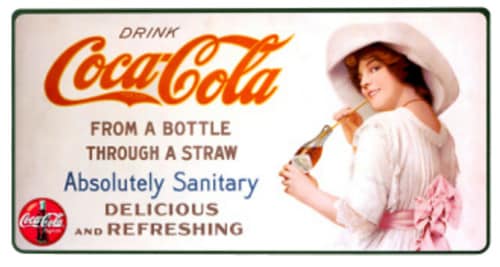
Dr. Pretlow believes the millions of overweight and obese kids deserve something better, which is the basis for his book Overweight: What Kids Say; for his Weigh2Rock website; for the W8Loss2Go smartphone application; and indeed for his entire career. He says:
Obesity appears to result from eating for reasons other than hunger, for simple pleasure and as a coping mechanism for relief from sadness, stress, anxiety, and boredom. Nearly unlimited availability of cheap food facilitates this. Food companies market to this, as in “Comfort in Every Bar'”(Milky Way slogan) and “You deserve a break today” (McDonald’s).
According to legend, all the major food corporations learned their seductive advertising techniques from coffee companies. Whether that is subjectively true or not, the undeniable fact is that America is drowning in food advertising.
Anthony E. Gallo, longtime editor of the USDA’s Food Marketing Review, gave his answers to the question, “Why so much advertising?“:
First, the food market is huge, capturing about 12.5 percent of consumer income, and there is vigorous competition among food firms to compete for this market. Second, food is a repeat-purchase item, lending itself to swift changes in consumer opinions. Third, food is one of the most highly branded items in the American economy, thus lending itself to major advertising.
The unstated and probably inadmissible answer is that food is the product that most easily lends itself to emotional manipulation. An important tool in any type of indoctrination is the slogan, catchphrase, motto, saying, or rallying cry. For the Crusaders, it was “Deus hoc vult!,” or “God wills it!”
American revolutionaries yelled “Liberty or death!” Of course not all such slogans are warlike. The Latin saying “Per aspera ad astra,” or “Through hardships to the stars,” has many positive connotations and could appropriately refer to an individual’s journey toward normal weight and improved health.
Childhood Obesity News has mentioned motivational coach Steve Miller, whose battle cry is, “It’s time to shout FAT OFF!!! You deserve better!!!” What could be wrong with telling a fellow human being that she or he deserves a fate better than the current one?
Unfortunately, the ability of slogans to get people charged up is a sword that cuts both ways. Anyone familiar with McDonald’s advertising campaigns will probably feel a subliminal tug on the emotions that were once moved by the fast-food company’s encouraging words, “You deserve a break today.”
Logically, if we condemn McDonald’s slogan, we have to condemn Miller’s slogan too. Or do we? Because in truth, there is nothing wrong with implying that a busy, overworked person needs some respite from the harsh demands of daily life. But that compassionate sentiment goes off the rails when the corporation adds its own name: “You deserve a break today — at McDonald’s.” The harm is in equating a break, a mini-vacation, with a tray full of grease, salt and sugar — substances that neither refresh, renew, nor revitalize.
There is a strange twist to all this encouragement of consumption. We assume that advertising is fiercely competitive. But does it really foster brand loyalty? Can it actually shift brand loyalty? Nobody knows for sure.
Maybe advertising can only trigger generalized desire. When a person sees a Pepsi commercial, and there is nothing but Coke in the refrigerator, he or she will probably settle. But even if advertising does nothing more than stimulate hunger, rather than desire for one particular brand, it is still effective in the larger sense.
Viewed from one perspective, the mega-corporations are not competing with each other, but acting in cooperative mutual altruism. Even if they know for sure that ads do nothing for brand loyalty, so what? It’s still more money in all their pockets. That just might be the world’s biggest conspiracy, how they all work together to stimulate eternal, undiscriminating hunger and thirst.
What if the goal of food and beverage advertising is simply to build a nation of addicts, for the benefit of all the suppliers? As a business motto has it , “A rising tide lifts all boats.”
Your responses and feedback are welcome!
Source: “Food Advertising in the United States,” USDA.gov, 1999
Source: “Steve Miller’s Weight Loss Master,” YourWeightLossMaster.co.uk, undated
Photo credit: Coca Cola Museum via VisualHunt/CC BY

 FAQs and Media Requests:
FAQs and Media Requests: 











